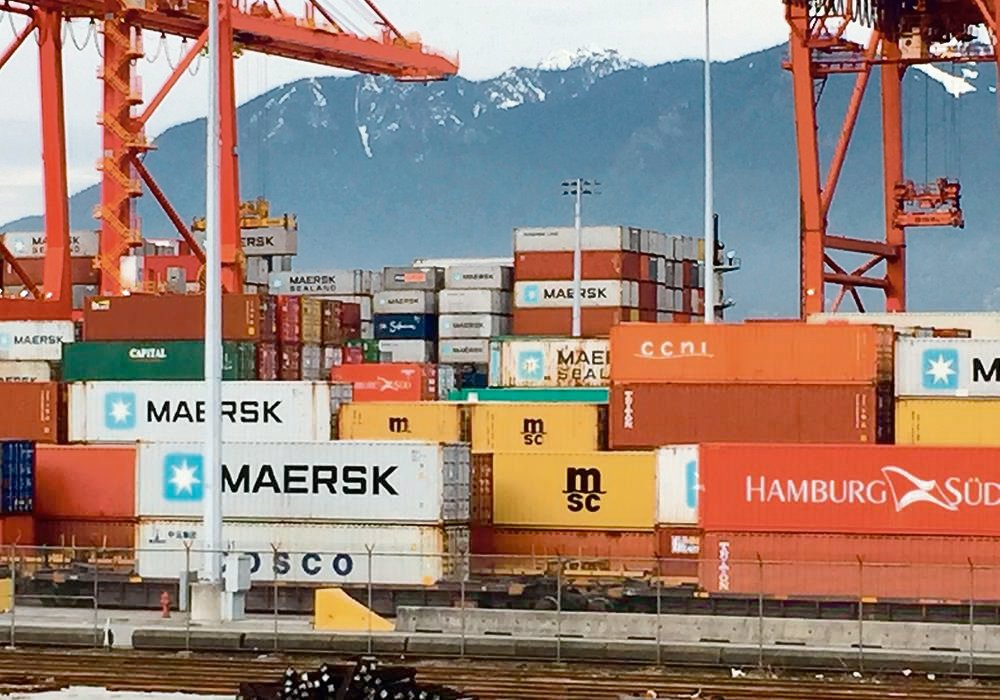Governments must take co-ordinated action to fix crisis

It is time for government to help improve co-ordination among parties involved in transporting shipping containers.
Help is necessary to clear the shortages and logjams that are starving manufacturers of parts and leaving exporters with no means to export.
Sean Pratt of The Western Producer recently reported on the obstacles that lentil exporters face this year because of the container shortages at the Port of Vancouver.
The shipping industry, whose ownership is highly concentrated among 10 companies, makes vastly more money moving a container from China to North America than the reverse route, so there is a huge incentive to move empty containers to China as quickly as possible rather than waiting to load the container with product from North America.
Another example of the troubles caused by the shortage was provided by American publication Progressive Farmer, which last week published an interview with Scott Wine, chief executive of CNH Industrial N.V. and an executive director on the company’s board of directors.
Wine said he spends “the vast majority of” his time looking for ways to solve supply chain challenges.
The company has hundreds of combines mostly built but not finished because of parts shortages.
To address one problem, the company resorted to airfreighting engine blocks from Brazil to Italy to keep tractor production lines going.
The list of examples of the knock-on effects of container shortages goes on, from long wait times for new pick-up trucks to advisories to consumers to do Christmas shopping now to avoid disappointment.
The prime mover of the crisis was the fight against COVID-19, which initially caused a demand collapse but then demand for all sorts of goods bounced back much quicker than expected.
Supply chains were stretched and now links in the chain — from ships, to ports, to trucks to railways — are all cracking under the strain and everyone is pointing figures at each other as the problem.
This sounds familiar to western Canadian agriculture, which faced a transportation crisis in the grain bulk handing sector almost a decade ago, caused partly by a bitterly cold winter.
Government involvement helped to get the players in the system to start sharing more information instead of finger pointing. Benchmarks were set to add car supply to the system and amendments were made to transportation legislation to add competition between the railways
This improved co-ordination, information sharing and forced competition, coupled with huge investments by the railways in new hopper cars and engines, as well as grain company investment in new and expanded port terminals made the system much more efficient. It was able to move a record-shattering amount of grain in the last crop year.
The current situation in container shipping is more complicated because it is a global one.
Nevertheless, governments, co-operating with allies and within trading blocs, should turn their attention to the crisis and see where they might help with co-ordination and where they can remove regulatory roadblocks.
It is not enough that Transport Canada this summer said it is “monitoring international developments” and “considering their implications for the Canadian context.”
American President Joe Biden this summer ordered creation of a Supply Chain Disruptions Task Force, headed by the secretaries of commerce, transportation, and agriculture to help diagnose problems and find solutions.
Canada’s federal government would do well to adopt a similar stance and to co-operate with its American counterpart to find multinational solutions.
There is some congestion at Vancouver, but the situation is much worse at American West Coast ports where dozens of ships full of needed goods are backed up. Before COVID it was rare to have more than one ship waiting for a berth.
Ports note they have improved their productivity from pre-COVID levels.
The Biden White House recently urged two major ports in California to move to 24-hour, seven-day-a-week operations. The ports recently expanded hours but note the move won’t do much when there is still a shortage of trucks and drivers available to remove the containers from port storage and transport them to users.
Trucking firms said they suffered the same recruitment problems as other industries competing with COVID unemployment benefits, but also have a hard time overcoming the long-term reputation of a difficult, stressful and sometimes dangerous career that requires long periods away from family.
Truck driver shortages are also a result of large rapid turnover of employees who train but then do not stay in the industry.
The industry and regulators will need to address compensation and other factors that make the job unattractive.
All these factors slow the economic recovery from the pandemic and could make the global inflation threat more intense and long term.
Governments must not ignore them.
Source: producer.com

